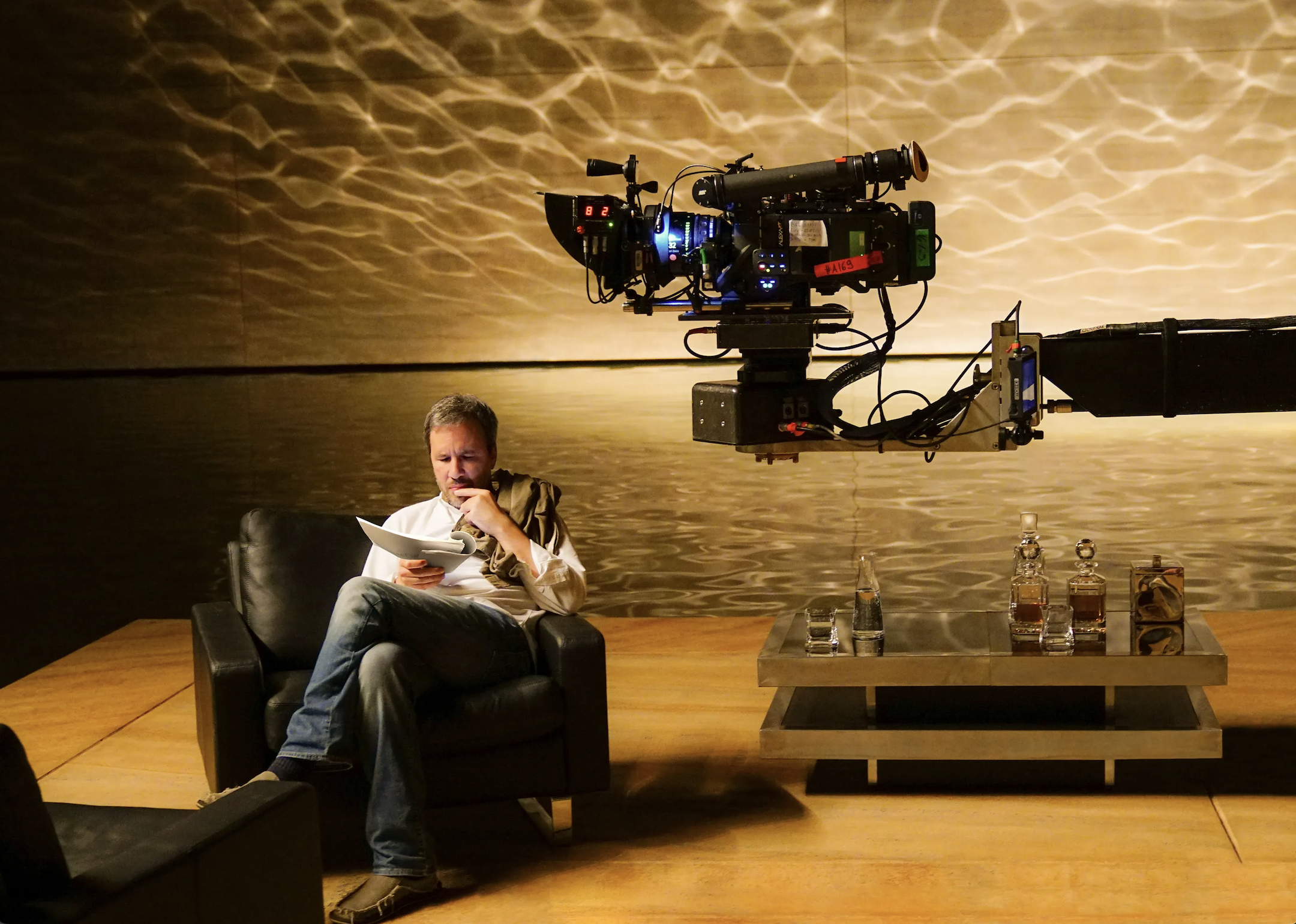REW FFWD

Denis Villeneuve is a name that has come to define modern cinema, an auteur whose mastery of storytelling, visual composition, and thematic depth resonates with audiences worldwide. With films such as Arrival (2016), Blade Runner 2049 (2017), and Dune (2021), Villeneuve has earned a reputation as one of the most innovative filmmakers working today. His work, consistently marked by a profound attention to atmosphere, scale, and human emotion, carries both the weight of philosophical inquiry and the grandeur of cinematic spectacle.
![]()
Villeneuve’s artistic voice is deeply influenced by the French New Wave and the European art-house tradition, which favors experimentation with form and the questioning of established norms. His approach to genre—whether science fiction, drama, or thriller—is informed by an interest in the psychological dimensions of his characters, often exploring the tension between human frailty and larger, often cosmic forces. His films’ brooding, haunting soundscapes, as well as their meticulous, often slow-burning cinematography, evoke the atmospherics of filmmakers like Andrei Tarkovsky and Stanley Kubrick, whose works also grapple with themes of existentialism, time, and the unknown.
In addition to European influences, Villeneuve’s works exhibit the influence of his Canadian heritage, particularly the desolate, vast landscapes that permeate his native Quebec. These settings become characters in themselves, amplifying the themes of isolation, identity, and the struggle for meaning that underpin much of his work. His stories are often marked by an elegiac quality, where the quest for understanding—whether personal, political, or cosmic—leads characters into existential confrontations that are as intimate as they are universal.
![]()
Villeneuve’s work is also notable for its deep cultural engagement, often positioning his characters in situations where they must navigate not only personal dilemmas but larger societal and ethical challenges. His films prompt questions about communication, power, and the human condition, taking on cultural issues in subtle, yet powerful ways. Whether through the exploration of language in Arrival or the environmental implications in Dune, Villeneuve places his narratives in a larger social and cultural context, reflecting the complexities of the modern world.

Villeneuve’s artistic voice is deeply influenced by the French New Wave and the European art-house tradition, which favors experimentation with form and the questioning of established norms. His approach to genre—whether science fiction, drama, or thriller—is informed by an interest in the psychological dimensions of his characters, often exploring the tension between human frailty and larger, often cosmic forces. His films’ brooding, haunting soundscapes, as well as their meticulous, often slow-burning cinematography, evoke the atmospherics of filmmakers like Andrei Tarkovsky and Stanley Kubrick, whose works also grapple with themes of existentialism, time, and the unknown.
In addition to European influences, Villeneuve’s works exhibit the influence of his Canadian heritage, particularly the desolate, vast landscapes that permeate his native Quebec. These settings become characters in themselves, amplifying the themes of isolation, identity, and the struggle for meaning that underpin much of his work. His stories are often marked by an elegiac quality, where the quest for understanding—whether personal, political, or cosmic—leads characters into existential confrontations that are as intimate as they are universal.

Villeneuve’s work is also notable for its deep cultural engagement, often positioning his characters in situations where they must navigate not only personal dilemmas but larger societal and ethical challenges. His films prompt questions about communication, power, and the human condition, taking on cultural issues in subtle, yet powerful ways. Whether through the exploration of language in Arrival or the environmental implications in Dune, Villeneuve places his narratives in a larger social and cultural context, reflecting the complexities of the modern world.

Before Denis Villeneuve became renowned for his sci-fi epics and meditative dramas, his short film REW-FFWD (1994) revealed his sensitivity to cultural encounters and personal transformation. The film follows a young European photographer who is sent to Jamaica, where his initial discomfort with the vibrant, chaotic environment contrasts sharply with his calm, structured life. Villeneuve captures the photographer's emotional turbulence as he struggles to navigate the alien customs, sounds, and visual textures of the island. This cultural shock gradually shifts to fascination, as the photographer becomes captivated by the music, energy, and sense of community around him, leading to a deep, transformative connection with Jamaica’s raw beauty.
The film’s title, REW-FFWD, mirrors the photographer's internal evolution, as his perception of the world rapidly changes. Villeneuve’s lens explores not only the shifting emotional landscape of the protagonist but also the power of cultural exchange and the way personal growth often emerges from the unfamiliar. REW-FFWD foreshadows many of the themes that would dominate Villeneuve’s later works: the tension between the known and the unknown, the search for understanding in new environments, and the transformative power of human connection. The film’s focus on place as an active, dynamic force that reshapes individuals underscores Villeneuve’s early exploration of how cultures shape and define personal identity.
![]()
BACK
The film’s title, REW-FFWD, mirrors the photographer's internal evolution, as his perception of the world rapidly changes. Villeneuve’s lens explores not only the shifting emotional landscape of the protagonist but also the power of cultural exchange and the way personal growth often emerges from the unfamiliar. REW-FFWD foreshadows many of the themes that would dominate Villeneuve’s later works: the tension between the known and the unknown, the search for understanding in new environments, and the transformative power of human connection. The film’s focus on place as an active, dynamic force that reshapes individuals underscores Villeneuve’s early exploration of how cultures shape and define personal identity.

BACK
